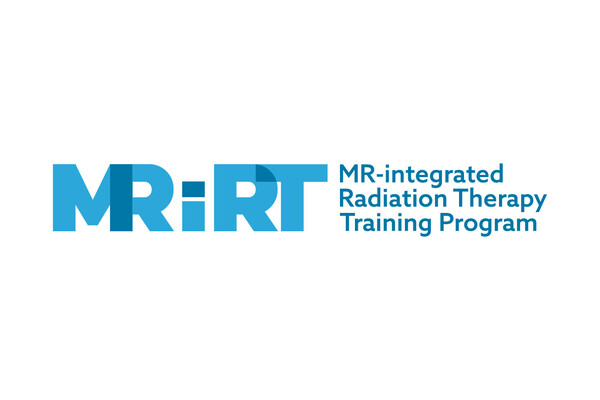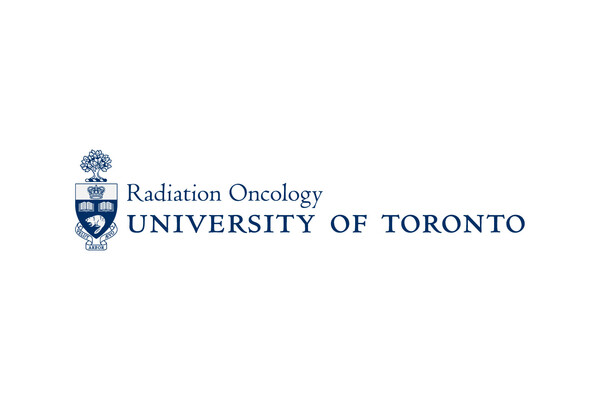Program at a Glance
The MRiRT Training program uses a unique hybrid model in partnership with hospitals combining didactic with clinical consolidation during the 31-week program. The virtual classroom portion of the program leverages remote-access and web-based radiation medicine software to deliver both didactic and hands-on practical training. At completion of the 31-week program, learners will receive an Advanced Certificate of Completion from the CPD Office of Temerty Faculty of Medicine, University of Toronto. The MRiRT program is also CAMRT and ARRT accredited (number of credits pending).
Key Dates for the 2024 Program
- Applications Open: May 15, 2024
- Application Deadline: July 15, 2024
- Start of Program: September 2024 (exact date TBD)
Target Group
The program is open to radiation therapy professionals who have demonstrated knowledge, skill, and aptitude in the entire radiation therapy care pathway (simulation, treatment planning and treatment delivery).
Program Length
31-week competency-based program
- Didactic: 25 weeks, part-time (not necessarily consecutive weeks)
- Clinical Consolidation: 6 weeks (4 weeks, part-time and 2 weeks, full-time)
Delivery Method
- Didactic: Online (synchronous and asynchronous learning, 3-6 hours per week)
- Clinical Consolidation: Virtual labs (24 hours over 4 weeks) and in person (37.5 hours per week)
Learning Objectives
- Integrate safety principles and procedures into RT practice
- Recognize and respond to MR safety hazards
- Manage a variety of treatment, imaging and hybrid imaging radiotherapy systems
- Integrate MR clinical principles into RT practice by applying knowledge of MRI cross-sectional/relational anatomy
- Analyze MR image and data quality and optimize as required.
- Manage imaging strategies for individual radiation therapy care plans
- Evaluate MR-guided radiation therapy plan of the day
How is the MRiRT program curriculum structured?
The MRiRT Training Program is a comprehensive, learner-centred, multi-faceted curriculum designed for RTsto acquire the confidence and competence to integrate MR-technology into their practice.
The program is structured around the various learning needs of the participants. The majority of the program will be offered online. The online phase of the program will use both synchronous and asynchronous activities. Through a combination of readings, live and recorded lectures, live facilitated discussion and group work, and online simulated practical exercises using the program’s case bank, the learners will garner the knowledge and skills to safely employ MR in the radiation therapy context.
Learners will have the opportunity to apply their new knowledge of MR in radiation therapy and expand their clinical skills during the final 6-week clinical practice consolidation course through a series of virtual labs followed by hospital-based immersive experiences in diagnostic imaging, MRI simulation and MR-Linac/ MRI guided treatment delivery units.
MR Image Formation & Interpretation
The objective of this course is to introduce learners to the foundational components of MRI. In this course, learners will learn the fundamentals of MRI physics, equipment and instrumentation as it relates to radiation therapy practice. Topics covered include theory and application of MR physics for image formation, reconstruction and manipulation, instrumentation (both MRI simulators and MR-Linacs), concepts of quality assurance and quality control.
MRI Patient Care & Safety
The objective of this course is to introduce the learner to the fundamentals of MRI safety principles and patient care within a radiation therapy environment. In this course, learners will learn the importance of taking a leading role in education of self and others on the prevention of MRI incidents, safety considerations of radiation therapy equipment within an MRI environment, and the unique risks of all individuals entering an MRI environment. Emphasis will be placed on MRI safety practices and guidelines, with a focus on communication and care of patients before, during and after MRI procedures within the RT environment.
MRI for Central Nervous System & Head & Neck
The objective of this course is to introduce the learner to the fundamental principles of anatomy, physiology, pathology, and methodology as it relates to CNS and H&N cancers across the radiation therapy care pathway (simulation, treatment planning, and treatment delivery).
MRI for Thorax
The objective of this course is to introduce the learner to the fundamental principles of anatomy, physiology, pathology, and methodology as it relates to cancers within the thorax across the radiation therapy care pathway (simulation, treatment planning, and treatment delivery).
MRI for Abdomen
The objective of this course is to introduce the learner to the fundamental principles of anatomy, physiology, pathology, and methodology as it relates to cancers within the abdomen across the radiation therapy care pathway (simulation, treatment planning, and treatment delivery).
MRI for Male & Female Pelvis
The objective of this course is to introduce the learner to the fundamental principles of anatomy, physiology, pathology, and methodology as it relates to cancers within the pelvis across the radiation therapy care pathway (simulation, treatment planning, and treatment delivery).
Clinical Practice Consolidation
The Clinical Practice Consolidation with Virtual Labs course is a 4-week (24 hour) online experience followed by a 2-week (75 hours) hospital-based experience that provides learners with the opportunity to synthesize prior learning and apply the principles covered in the didactic portion of the Program.
During the Virtual Labs, the learner will collaborate with a preceptor to develop and refine their clinical practice skills to meet the learning outcomes. Hours and days of the week are flexible based on learners and preceptor’s schedule.
During the onsite hospital-based experience, learners will have the opportunity to observe and practice through supervised participation the planning and delivery of MR integrated radiation therapy for a variety of oncologic indications.
Where to now?
Click on your topic of interest to navigate there or scroll down to learn more.
Entrance Requirements and Admission Procedures
Review program prerequisites and a step-by-step admissions process.
FAQ, Policies, Contact & More
Learn about Covid-19 safety, program policies, newsletter, program contact and more.
Program Leadership & Sponsors
View information about program leadership, organization and sponsors.
Why study MR-integrated Radiation Therapy at the University of Toronto (UTDRO)?
1. Clinical Practice Consolidation is unique to the UTDRO MRiRT Training Program.
Clinical Practice Consolidation is a critical component to ensure our learners are setup for success at their respective workplaces. After completing the didactic portion of the program, learners will apply their knowledge and gain hands-on experience in the Clinical Practice Consolidation course. This course provides the learners opportunities to work closely with MRI Technologists, Radiation Therapists and Radiation Therapists dual-trained in MRI within the virtual labs and onsite at our affiliated clinical sites.
The two-week full-time placement is arranged for learners by the UTDRO office. The placement can only be arranged after students have completed all the required health and safety clearance documents. The placement must be completed within 12 months of finishing the online didactic portion of the program.
UTDRO continues to recruit clinical partners internationally and it is anticipated that site availability will change every year. Out of province and international students are encouraged to contact mrirt@utoronto.ca for more information and to discuss potential clinical partners.
2. Part-time program designed with experienced, working RTTs in mind.
All didactic courses are offered online, which allows learners to continue to work in their current roles for the majority of the program.
The Clinical Practice Consolidation course has been designed to leverage remote-access and web-based radiation medicine software to deliver virtual labs coupled with a 2 week in person clinical placement.
This eliminates the need for extended leaves of absences allowing high-volume, high-throughput RT departments to maintain appropriate staffing levels while advancing their team to safely and effectively integrate MRI in RT practice.
3. UTDRO is an internationally recognized leader in its educational programs and professional development offerings.
With over 100 graduates each year and several hundred attendees at its continuing education offerings per annum creating a broad, global alumni base. It spans the Greater Toronto Area with two academic centres and four community hospitals, a faculty complement of almost 200 and delivers treatment to a substantial number of patients. For over 7 years the two academic centres, Sunnybrook Odette Cancer Centre (OCC) and Princess Margaret Cancer Centre (PMCC), have been at the forefront in the development, clinical implementation, and evaluation of MRGRT globally.
4. UTDRO is a leader in the integration and advancement of the RTTs within its faculty and beyond.
UTDRO enables RTTs to lead and drive the MRiRT Training Program. It also has a strong relationship with its Diagnostic Imaging colleagues due to the joint Medical Radiation Sciences program and historical department partnerships. These relationships and expertise set UTDRO apart from other university departments in offering advanced training in MRI for RT practice.
Entrance Requirements and Admission Procedures
Applications for the 2024 admissions cycle are now open. The deadline to apply is January 12, 2023.
Learn about:
- Minimum program entrance requirements
- English language requirement
- COVID vaccine requirement
- Step-by-step application process
FAQ
How do Radiation Therapists utilize MRI in practice?
Due to its superior soft-tissue contrast, the integration of MRI across the RT care pathway has increased dramatically over the last decade. Even in centres without a dedicated MRSIM, MRI has taken on an important role in treatment planning for target and organ at risk delineation for a wide variety of disease sites including brain, head and neck, gynecological, urological and gastrointestinal malignancies.
To capitalize on the benefits that MRI brings to radiation planning, RTTs must possess an understanding of MRI cross sectional anatomy, image interpretation and the principles of image registration. For RT departments that have dedicated MRSIMs, it is desirable to have RTTs trained, not only in the MRI safety requirements, but also in the operation of the MRI scanner to maximize the usability of images for treatment planning through careful consideration of patient positioning and imaging parameters.
With the development of MR-Linacs and MR-guided Brachytherapy suites, MRI is now being incorporated as an image guidance modality for treatment delivery with the added benefit of online adaptation with motion-monitoring capabilities. This technological advancement requires RTTs to harness their understanding and skills from operating MRSIMs and combine with sophisticated RT planning knowledge to safely deliver real-time, MR-guided, adaptive radiotherapy to all cancer patients.
What credentials will learners be eligible for?
- This program has been accredited as an Advanced Certificate of Completion in Continuing Professional Development from the Temerty Faculty of Medicine, University of Toronto.
- CAMRT and ARRT (number of credits pending).
What is the course fee?
$7,000 CAD
What are the admission requirements?
Please visit MRiRT Entrance Requirements and Admission Procedures webpage for complete details.
What is being done to ensure learner safety during the COVID-19 pandemic?
The MRIRT Training Program at the UTDRO is working diligently and taking every precaution as it pertains to the COVID-19 pandemic to keep our learners, faculty, staff, and clinical partner sites safe.
As the global response to the COVID-19 pandemic continues to evolve, changes may occur as public health authorities adjust to new data about the virus. In these circumstances, please be advised that the manner of delivery of the Clinical Practice Consolidation course is subject to change in accordance with university and clinical partner site policies.
What is the cancelation policy?
Please visit the MRiRT Program Policies webpage for complete details.
Who do I reach out to for questions?
Please email the MRiRT Training Program at MRiRT@utoronto.ca
More Resources
View the Program Cancelation Policy.
Have a question about the MRTiRT Training Program? Email us at MRiRT@utoronto.ca.
Get the latest news about the MRiRT program delivered to your inbox. You can unsubscribe at any time.
Darby Erler
Program Director
Laura D’Alimonte
Associate Director, Curriculum
Nicole Harnett
Program Advisor



